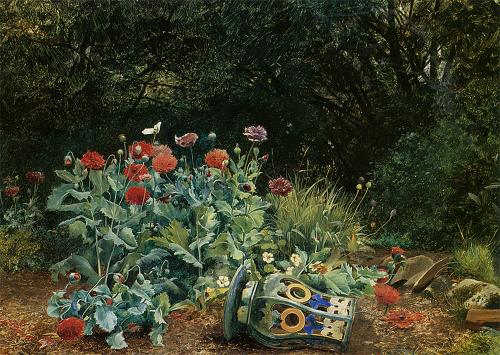
Two people return to their long neglected garden and find among the weeds a few of the old plants surprisingly vigorous. One says to the other, ‘It must be that a gardener has been coming and doing something about these plants.’ Upon inquiry they find that no neighbour has ever seen anyone at work in their garden. The first man says to the other, ‘He must have worked while people slept.’ The other says, ‘No, someone would have heard him and besides, anybody who cared about the plants would have kept down these weeds.’ The first man says, ‘Look at the way these are arranged. There is purpose and a feeling for beauty here. I believe that someone comes, someone invisible to mortal eyes. I believe that the more carefully we look the more we shall find confirmation of this.’ They examine the garden ever so carefully and sometimes they come on new things suggesting that a gardener comes and sometimes they come on new things suggesting the contrary and even that a malicious person has been at work. Besides examining the garden carefully, they also study what happens to gardens left without attention. Each learns all the other learns about this and about the garden. Consequently, when after all this, one says, ‘I still believe a gardener comes’ while the other says, ‘I don’t,’ their different words now reflect no difference as to what they have found in the garden, no difference as to what they would find in the garden if they looked further and no difference about how fast untended gardens fall into disorder. … What is the difference between them?
— John Wisdom, “Gods,” Proceedings of the Aristotelian Society, 1944
Antony Flew asks, “Just how does what you call an invisible, intangible, eternally elusive gardener differ from an imaginary gardener or even from no gardener at all?”
